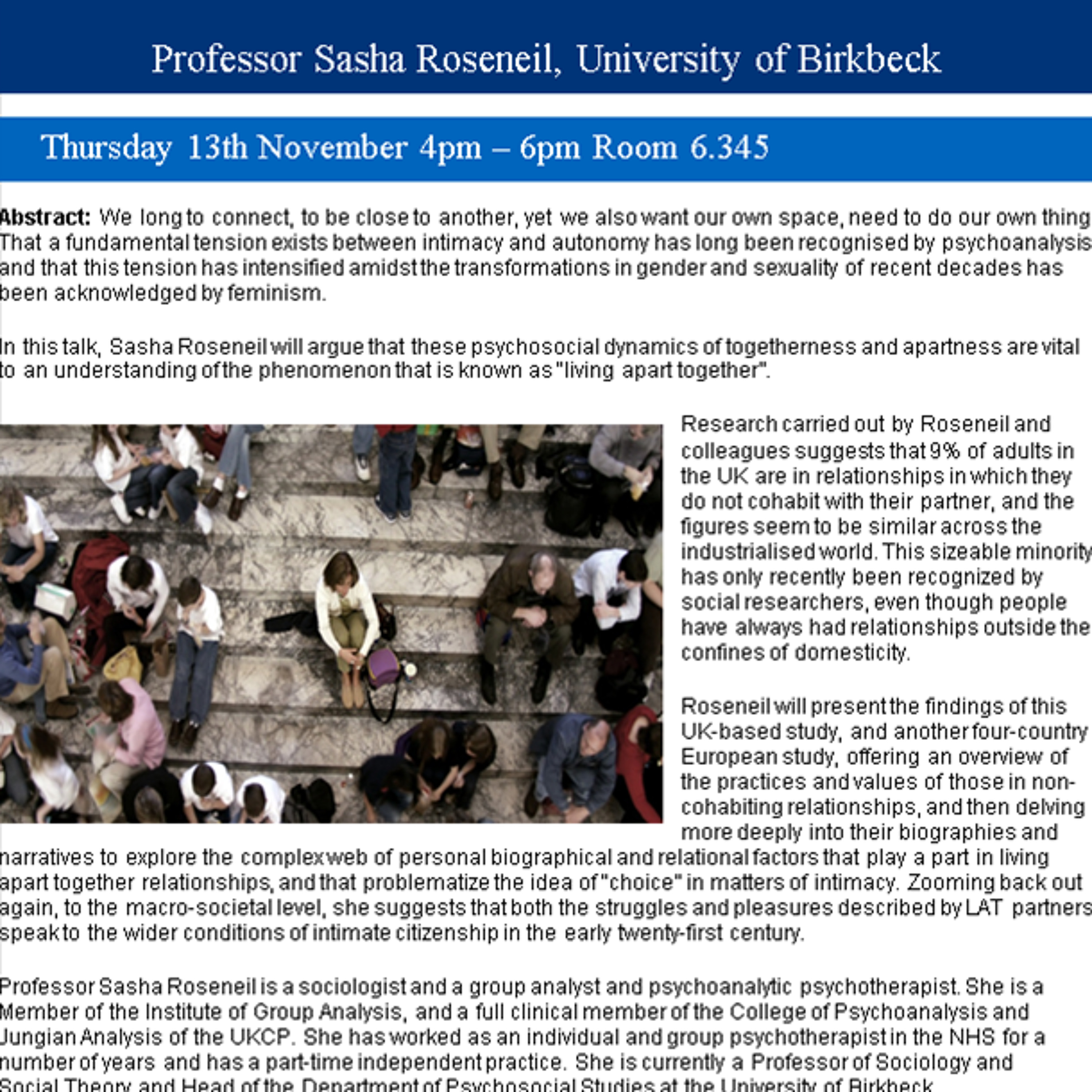Together/Apart: intimacy and autonomy in contemporary personal life by Prof Sasha Roseneil

Abstract We long to connect, to be close to another, yet we also want our own space, need to do our own thing. That a fundamental tension exists between intimacy and autonomy has long been recognised by psychoanalysis, and that this tension has intensified amidst the transformations in gender and sexuality of recent decades has been acknowledged by feminism. In this talk, Sasha Roseneil will argue that these psychosocial dynamics of togetherness and apartness are vital to an understanding of the phenomenon that is known as “living apart together”. Research carried out by Roseneil and colleagues suggests that 9% of adults in the UK are in relationships in which they do not cohabit with their partner, and the figures seem to be similar across the industrialised world. This sizeable minority has only recently been recognized by social researchers, even though people have always had relationships outside the confines of domesticity. Roseneil will present the findings of this UK-based study, and another four-country European study, offering an overview of the practices and values of those in non-cohabiting relationships, and then delving more deeply into their biographies and narratives to explore the complex web of personal biographical and relational factors that play a part in living apart together relationships, and that problematize the idea of “choice” in matters of intimacy. Zooming back out again, to the macro-societal level, she suggests that both the struggles and pleasures described by LAT partners speak to the wider conditions of intimate citizenship in the early twenty-first century.